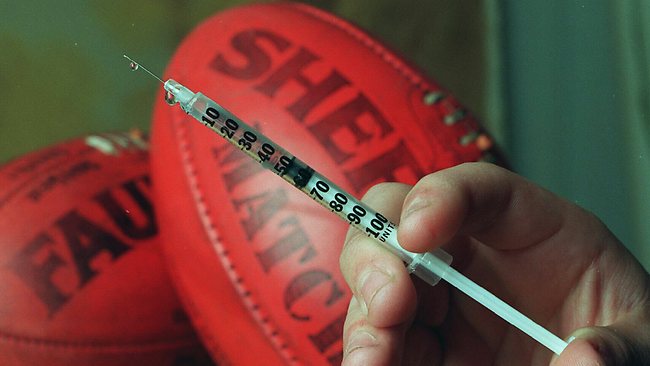The performance effects and harms associated with drug use are drug specific and content heavy. It is specifically because of this that the HSC PDHPE syllabus has a teacher note to reduce the content and focus on ethics.
Students need only a general understanding of the performance-related effects of, and the harm associated with, using drugs. Ethical considerations – such as fair play versus cheating, whether the drug use is for personal success or because sport is ‘big business’ – need to be explored.
This is a very large teacher note under Improving Performance, looking at use of drugs. But is should not be a surprise to use, because the critical question use of drugs comes under is: What ethical issues are related to improving performance? This means that the content for both use of drugs and use of technology are considered from an ethical point of view.
For students learn about under use of drugs, the syllabus has the following dash points that relate to performance effects and harms associated with drug use:
- the dangers of performance enhancing drug use, eg physical effects, loss of reputation, sponsorship and income
- for strength (human growth hormone, anabolic steroids)
- for aerobic performance (EPO)
- to mask other drugs (diuretics, alcohol)
- benefits and limitations of drug testing
To apply the teacher note to this content, means you are not required to understand how the drugs affect performance, but know that they do create a performance effect. So, a HSC PDHPE student should know that human growth hormone increases muscular size, strength, and power, but you DO NOT have to know how it does this. The same goes for steroids, EPO, and diuretics (that they mask drugs, not that they improve performance, although they can be used to place an athlete in a lower weight category).
Performance effects and harms associated with drug use also relates to the harms associated with drugs. Again a HSC PDHPE student does not need to know how the drug causes the harm, but that it does cause harm. Note also that the learn about dash point here provides examples of emotional and economic harms in addition to the physical harms. You should ensure your application of harms includes these.
I often advise my students to not focus solely on the learn abouts, but to always look at the learn tos in order to determine what you need to be able to do with the content. Lining up with use of drugs in the learn to column we find:
- justify the reasons drugs are considered to be unethical and carry a range of risks for the athlete
- argue issues related to drug testing such as:
- at what level of competition should drug testing be introduced?
- which drugs should be tested for?
- what are the pros and cons of drug testing?
- what should be the consequences of drug use?
I’m not going to look at drug testing at this point, but want to highlight the first learn to: Justify the reasons drugs are considered to be unethical… This learn to reveals that even the harms associated with drug use should be used to justify the unethical use of drugs, not to be understood on their own.
The performance effects and harms associated with drug use should only be generally understood. You do not need a depth of critical analysis or even be able to explain the performance effects and harms associated with drug use. So, focus on the unethical use of drugs, over how the drugs work.






